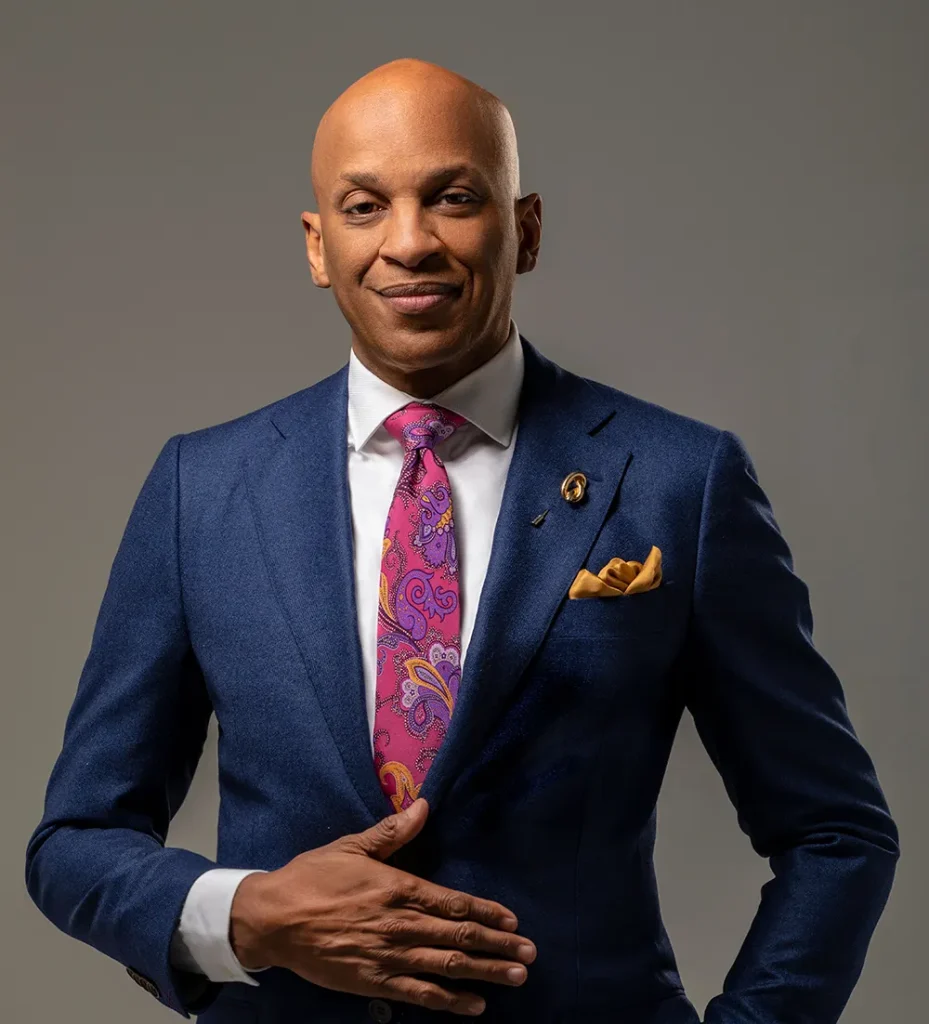“I want to find the Joshuas and Elishas and make sure that I don’t give [the platform] to the wrong person. That’s where I am now. I’m finishing up all the music that I’m supposed to do and then passing the baton and sitting back and watching.”
At 65 years young, Donald Andrew McClurkin Jr. is one of gospel music’s most celebrated legends. Even so, he’s been the brunt of swirling headlines about everything from his sexuality and marital status to his health. As a young boy, he was molested sexually, and went through a stage of homosexual attraction, but God healed him from that dark period. In 2016, he appeared on TBN and spoke about the void in his life and his desire to be married. At the time, he was in a dating relationship, however, the relationship never escalated to a formal engagement, and he has never been married. As for his health, mentally and otherwise, McClurkin (like everyone else) has gone through ups and downs, gains and losses, both in his love life, ministry, and family. Both his parents have passed and one of his sisters, as well as several relatives and friends. In 2018, he crashed his car after losing consciousness while driving and has admitted bouts of depression. But more than anything, McClurkin is a survivor, a man of great faith and a visionary!
In 2001, McClurkin launched Perfect-ing Faith Church in Freeport, NY, and in 2023, birthed a second ministry, Perfecting New Generation in Ami-tyville, NY. Incidentally, Amityville is where he grew up. “Pastoring is more fulfilling than I ever thought it would be” he shared. “I’m at a point now where this is all I want to do.”
McClurkin has retired from gospel music countless times, but somehow, keeps going back, and finding fans with open arms.
From February through March 2024, he was part of “The Legends of Gospel” Tour, along with Bishop Hezekiah Walker and Pastor Marvin Sapp. The tour was initially scheduled for seven weeks but was extended by popular demand!
“We started going to these different churches and auditoriums seating 3,000 and 4,000 people and they were packed out,” he shared. “One place in St. Louis had 500 people outside [that couldn’t get in]. I had to go outside in the cold and snow and shake everybody’s hand and hug and take pictures with them. Because my thing is, you came here to attend a concert, and you can’t get in. Same thing happened here in New York.” “Tours are now the mainstay of the gospel music industry,” McClurkin asserts. “And our [gospel] productions are better than the secular ones.”
“The tour industry has picked up because the record companies and all of the industry platforms have been shaken. Now, we’re back to how it was in the ‘50s and ‘60s. You made your money from tours. We can’t make money by [record] sales anymore. Kirk [Franklin], myself, Yolanda [Adams], Fred [Hammond]—all of us who were of that generation were in one of the greatest economic booms that gospel music has ever seen. Then, suddenly, the digital age hit, and the bottom fell out. And we weren’t selling CDs anymore, and our royalty rates shifted. We didn’t know anything about streams!”
McClurkin says that the digital shake-up resulted in a financial shakedown that was difficult to maneuver, especially through the pandemic. “The one stable and faithful platform was the tour. So, we got back out on the road, and we found, ‘Oh my God, the people have been waiting for this!’”
McClurkin points to the Kirk Franklin/Maverick City Music tour and the CeCe Winans tours as confirmation of the power and popularity of tours.
During the “Legends” tour, he says he was intentional about offering his platform to new artists. “We brought people in that had great musical abilities but no platform,” he stated. “We’re doing a new project now called “Kingdom Call,” and we’re bringing a bunch of young people together. It’s not a competition. It’s more complementary, because that’s the pulse of today.”
McClurkin again affirms that he is departing from the gospel industry but wants to ensure that the next gen-eration of gospel artists are musically and spiritually solid.
“Training and accountability are essential,” He emphasizes. He reflects on a television venture he participated in some years ago. “We made [the new artists] think that they could get to the top through a contest. That was the worst thing we could have ever done because you don’t even hear anything from 90% of them anymore. We didn’t give them the preparation they needed, and because of that, they floundered.”
“The industry’s growth can happen on sheer talent,” he says. “But in gospel ministry, which separates us from every other industry, there must be a level of spiritual integrity, responsibility and accountability that supersedes the gift. Artists have got to have a resume with God. They’ve got to have integrity and sanctification before I invest in them.”

